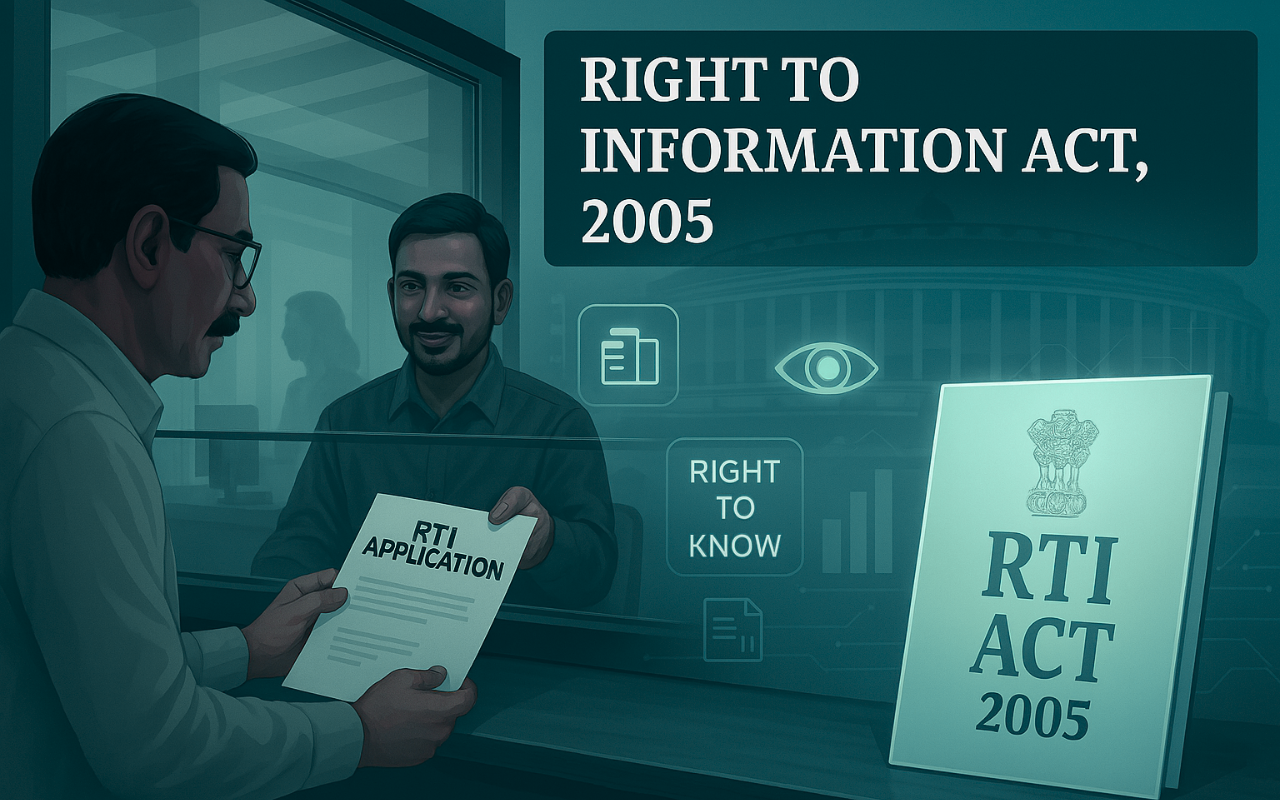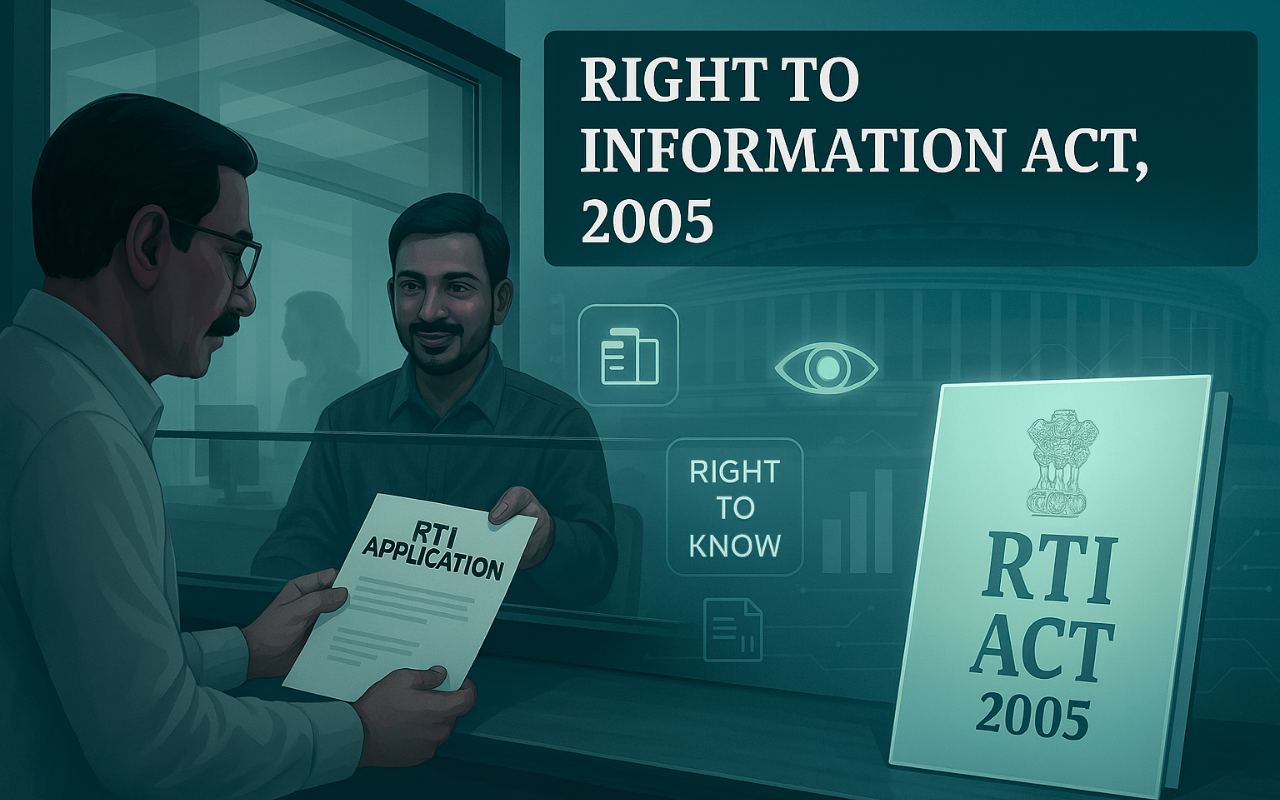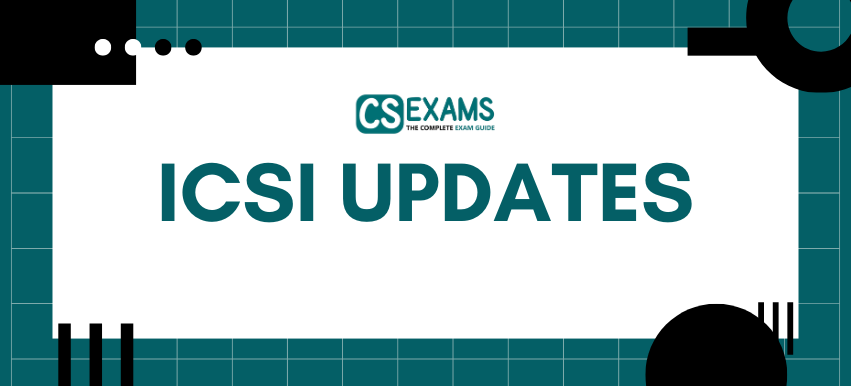The Right to Information Act, 2005, also referred to as the RTI Act, is a milestone legislation enacted by the Indian Parliament in order to ensure transparency and accountability in public authority functioning. It provides citizens with the statutory right to access information from the government and other public institutions, enabling them to be well-informed stakeholders in a democratic system. The Act serves to decrease corruption, increase good governance, and render the operations of government transparent to the public.
Overview of Right to Information (RTI) Act, 2005
In a democracy, transparency and accountability are important to ensure good governance. The Right to Information (RTI) Act, 2005, serves as a powerful tool for citizens to hold public authorities accountable and take meaningful participation in the democratic process.
It gives every citizen the legal right to access information under the control of public officials at a discount. Implemented in 2005, the RTI Act revolutionized information in India. It established an outline for citizens to request information from various public authorities and receive timely responses. The purpose of the Act is,
- Promote transparency and accountability in the functioning of government bodies.
- Make citizens empowered to effectively participate in decision-making processes.
- Reduce corruption and misuse of power.
Objectives of the RTI Act, 2005
The primary goals of the RTI Act are:
- To ensure transparency in government work by allowing public access to information.
- To make public officials accountable for their actions and decisions.
- To promote public participation in governance and decision-making.
- To compete with corruption by making it difficult to hide the information.
- To establish a practical rule where citizens can make requests and get more relevant information.
These objectives are formed under Article 19 (1) (A) of the Indian Constitution with the fundamental right of speech and the fundamental right to expression.
Enroll Now for CS CoursesBenefits of the Right to Information (RTI) Act
The Right to Information (RTI) Act symbolizes many major features:
Right to request information: Any citizen of India can request information in writing or electronically from the public authority.
- Simple procedure: The Act underlines a simple application process with minimal fees.
- Timely response: Public authorities are obliged to respond to RTI requests within a fixed time frame, usually 30 days.
- Rebate: Some categories of information are exempted from disclosure under the Act, such as national security affairs or personal information.
- Appeal mechanism: If an applicant is dissatisfied with the response or does not receive any response, they can appeal to a high authority within the Public Authority or the Information Commission.
Major provisions of the RTI Act
Some of the most important provisions of the RTI Act are:
- Section 3: Every citizen has the right to get information.
- Section 4: Public authorities should disclose the necessary information.
- Section 5: Appointment of Public Information Officers (PIOs) to handle RTI applications.
- Section 6: Citizens can submit an application written or electronically in English, Hindi, or a regional language.
- Section 7: Information should be provided within 30 days, or 48 hours if it is related to life or freedom.
- Sections 8 and 9: List exemptions from disclosure, such as national security, personal privacy, or trade secrets.
- Section 11: Third-party is related to information.
- Section 19: A two-level appeal provides a mechanism.
- Section 20: The Information Commission can punish non-disconnection.
Right to Information (RTI) Act Exemption Form Disclosure
The Right to Information (RTI) Act allows for exemption from disclosure for information of certain categories, including
- Information that can affect national security, defense, or strategic interests. Information that can harm relations with a foreign country.
- Information that can put a person's life or security in danger. Commercial privacy or business secrets.
- Personal information disclosure in which there is no public interest.
However, the burden of evidence is with the public authority to justify the exemption.
Right to Information (RTI) Act Information Commission
The Right to Information (RTI) Act establishes a two-level structure of information commissions:
- Central Information Commission (CIC): It oversees the implementation of the Act at the national level.
- State Information Commissions (SICs): Consider the implementation of the Act at the state level.
Power of information Commissions
Information commissions have power:
- Information about information by a public authority's disclosure.
- Penalty to public authorities for non-transportation.
- Recommend disciplinary action against the wrong officials.
RTI Application Process
- Any Indian citizen can file an RTI application to the PIO of the concerned department.
- The application should mention the specific information required.
- A fee of Rs. 10 is generally charged, and further charges may apply for copies.
- Applications can be filed in English, Hindi, or the local language.
- The PIO is expected to provide information within 30 days, or 48 hours if the information concerns life or liberty.
In case of rejection or no response, the applicant can file a first appeal with the departmental Appellate Authority and subsequently a second appeal with the Central or State Information Commission.
Amendment of the RTI Act
In 2019, the RTI Act was amended. Major changes include:
- The central government now determines the tenure of the Chief Information Commissioner and other Information Commissioners and the terms of service. Earlier, their conditions were fixed for five years.
- Critics argue that this amendment weakens the freedom of the Information Commissions. However, the main principles and civil rights under the RTI structure are unaffected.
Why Choose CS Exam Test Series for CS Preparation
When it comes to preparing for the hard CS exams, choosing the right test series can make all the difference. csexams.in has emerged as a trusted and result-oriented platform for CSEET, Executive, and Professional-level aspirants. Here's why it should be your first choice:
- Trusted by Thousands of CS Aspirants: The CS Exam has built a strong reputation among CS students for its consistent quality and excellent student feedback.
- ICSI Pattern-Based Question Papers: All tests are strictly based on the latest ICSI exam pattern and syllabus, ensuring real exam-like practice.
- Timely Evaluation with Expert Feedback: Get your answers evaluated within 48–72 hours along with detailed feedback, a marking scheme, and improvement tips.
- Personalized Mentorship & Study Planner: Get personalized mentorship, performance tracking, and a daily study plan customized to your syllabus completion pace.








